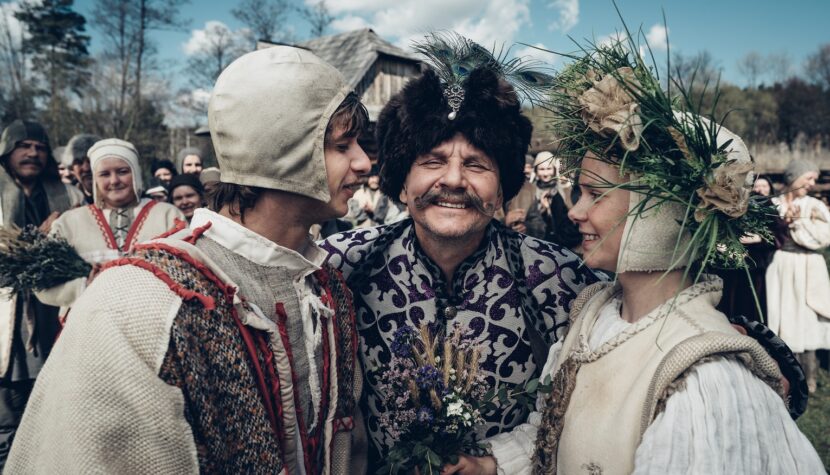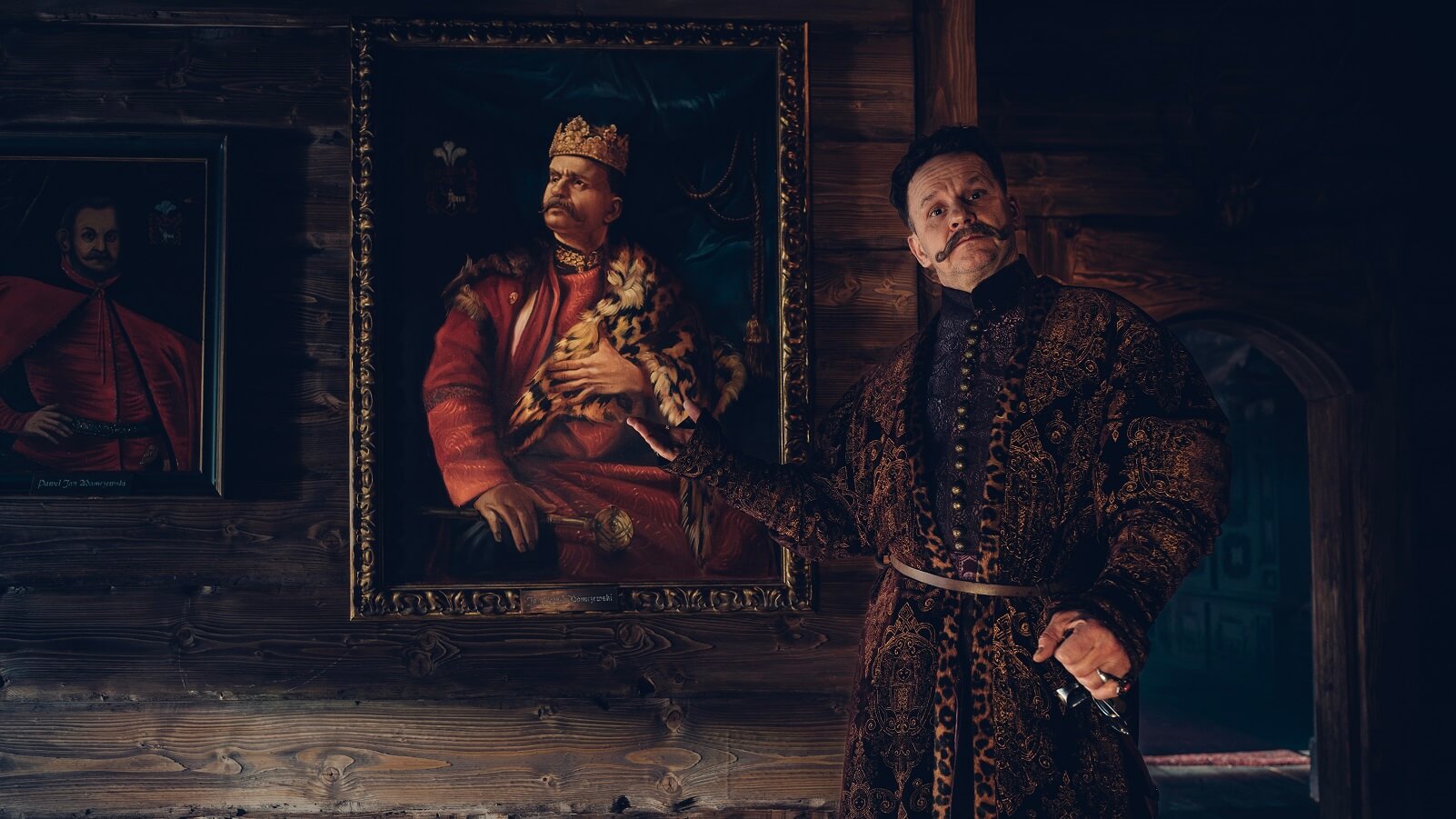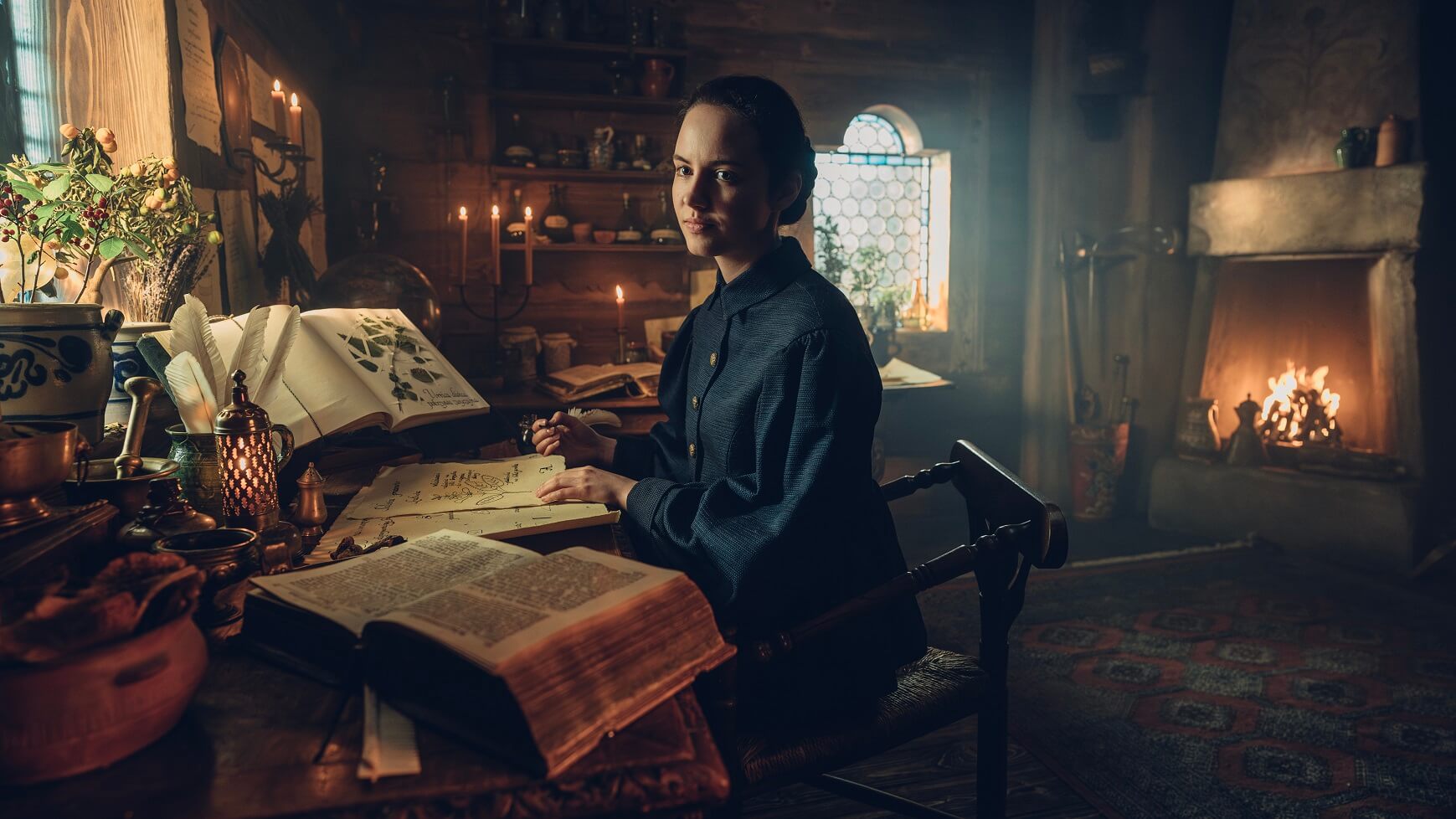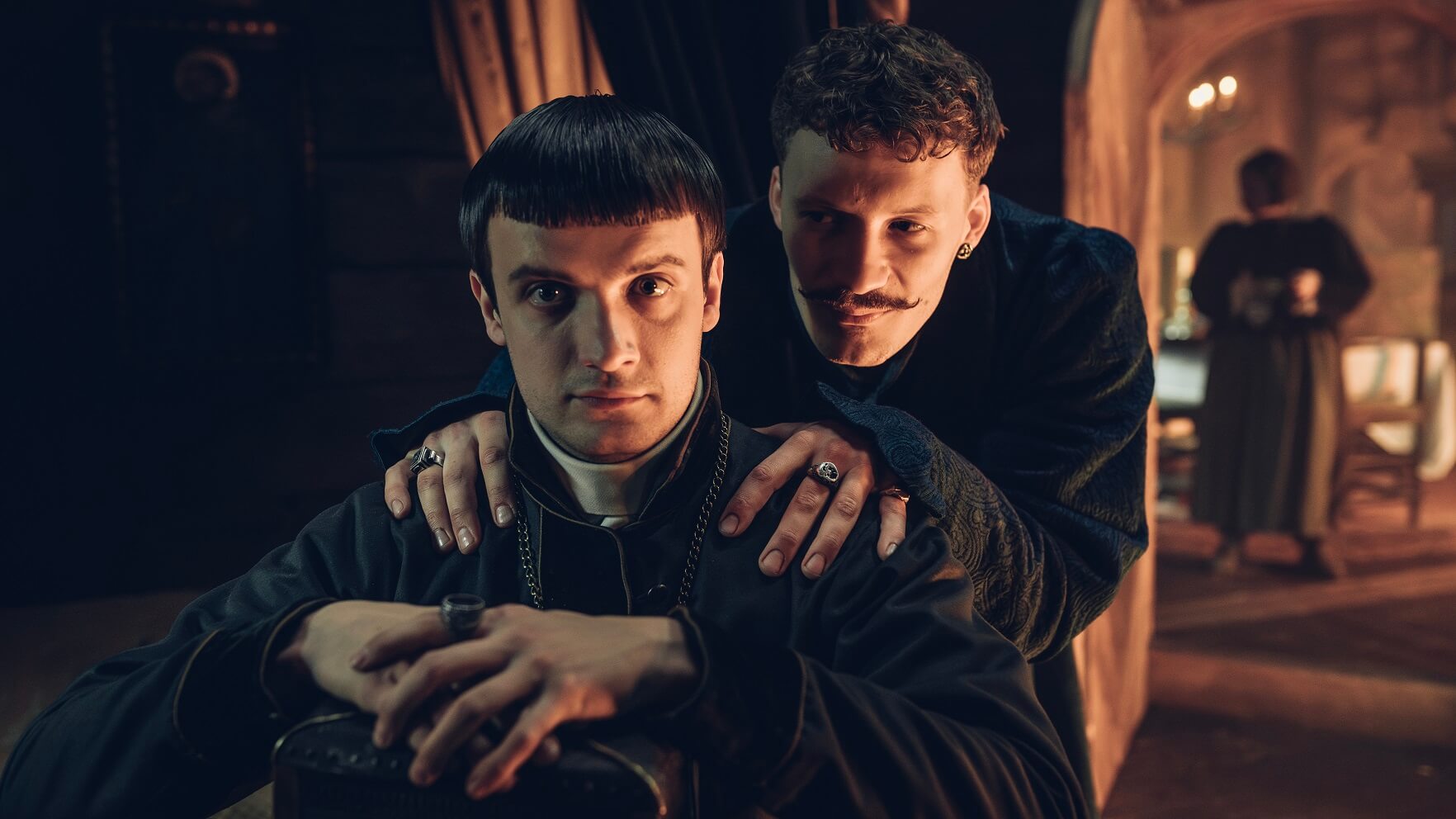1670. You will love this series!

1670 is a comedy series on Netflix somewhat realized in the mockumentary format. Somewhat, because the set design, costumes, cinematography, and music are too captivating for the series to fit within the confines of this specific subgenre, characterized, among other things, by a pseudo-documentary form. It is also impossible – for obvious reasons – for the characters to appear in a fake documentary in the year 1670. However, Netflix’s new series has two significant characteristics of a mock documentary. Firstly, akin to The Office or Modern Family, the characters repeatedly break the fourth wall, speaking directly to the audience and commenting on the hard life of a nobleman (and sometimes – which is less important – a woman or a peasant) at the end of the 17th century in Poland. Secondly, 1670 is a brilliant satire of the Polish mentality. Not only the sarmatian one, but also the contemporary one.
THE OFFICE meets THE GREAT Maciej Buchwald and Kordian Kądziela are the directors of the series 1670. The script was written by Jakub Rużyłło, who was previously responsible for some episodes of the Polish The Office. It’s hard not to see the analogy between the domestic version of a series about a boss incompetently managing his office and a nobleman incompetently managing his village (or more precisely, its smaller half). Especially when it comes to the main character lacking in refinement, empathy, and self-awareness. However, 1670 is not The Office in 17th-century costumes (although it is definitely a better Polish response to the American Office than The Office PL). If I were to compare Netflix’s novelty to other productions, I would rather mention a meeting of The Office and The Great. However, this still wouldn’t capture the essence of this series and its thoroughly immersed Polish character.

Netflix production, like the Hulu series, is dressed in a historical satire costume – targeting the sins of the past and the flaws of the present. However, while The Great is primarily an anti-patriarchal manifesto, 1670 combines historical and current threads on many other fronts, and perhaps does it even more skillfully than the American production. In meticulously crafted spaces and among “period” costumes, props referencing modernity appear (the rooster on the carriage is probably my favorite), and the whole thing is peppered with intertextual references to pop culture – from jokes about the pope, through Father Żmija from Sandomierz conducting an investigation in Adamczyska, to nods to Marvel. However, the creators do not stop at eye-catching and ear-pleasing embellishments. The most important are the sparkling dialogues and monologues, served with excellent comedic sense by the cast. 1670 ridicules Polish nobility, which led to the downfall of the Polish state, but also smuggles in many sarcastic remarks about today’s Poland and Poles.
Feminism, equality march, and jokes about Jews 1670 entertains viewers in many ways. Extremely absurd situational humor mixes with slapstick and witty jokes for the sharp-witted. In this respect, the creators of the series definitely do not take prisoners (just like Poles!), allowing themselves very bold jokes, of which perhaps the funniest are those… about Jews. Of course, just like the writers of The Office, those responsible for 1670 have their hearts in the right place and do not perpetuate harmful stereotypes, but rather cleverly and accurately mock them. Similarly, many other ugly phenomena, such as patriarchy, discrimination against minorities, classism, or religion. Serving as a counterweight to the backward environment here is Alina (Martyna Byczkowska), the daughter of Jan Paweł (John Paul, played by Bartłomiej Topa) – a feminist concerned about the fate of peasants and the future of the planet. However, it is extremely important that while the series will certainly amuse the left more than the right side of Polish society, privileged leftists will also get a deserved poke in the nose.

Gold and not modest at all The aforementioned Bartłomiej Topa and Martyna Byczkowska are great in their roles. Similarly, Katarzyna Herman as Zofia, the debauched wife of the main character, whom I probably least expected to have such precise comedic timing. However, Michał Sikorski and Michał Balicki shine brightest in the roles of Jan Paweł’s sons. The only downside of the latter actor (and probably the only downside of the entire series) is that he appears on the screen far too rarely.
Special mention should also go to Dobromir Dymecki in the role of the xenophobically inclined Bogdan and Kirył Pietruczuk as his roommate – a Lithuanian assistant to the blacksmith named MACIEJ. However, it would be really hard to point out any weaknesses when it comes to the cast of 1670. The whole team – from the main actors to the extras – performs phenomenally.

Listing the merits of Netflix’s new series, it is worth mentioning once again the formal aspect. The set design by Mirosław Koncewicz, costumes by Katarzyna Lewińska, cinematography by Nils Crone, and music by Jerzy Rogiewicz are all top-notch, which – as mentioned earlier – distances 1670 from the classic mockumentary, but at the same time makes the series exceptionally pleasing to the eye and ear. Perhaps the best proof of this is the dance scene in the tavern, which we can admire in the finale of the third episode, but there are really no poor shots, cardboard furniture, or cardboard crowns here.
All this contributes to a unique image that – quite seriously – has a huge chance of becoming the most cult Polish production on Netflix (I already use some quotes in everyday conversations!). Watch 1670 and have a great time like Polish nobility at a gathering! I guarantee that you will love this series already at the stage of the opening credits, or Jan Paweł Adamczewski is not the most famous Jan Paweł in the history of Poland! All episodes are available on Netflix.

